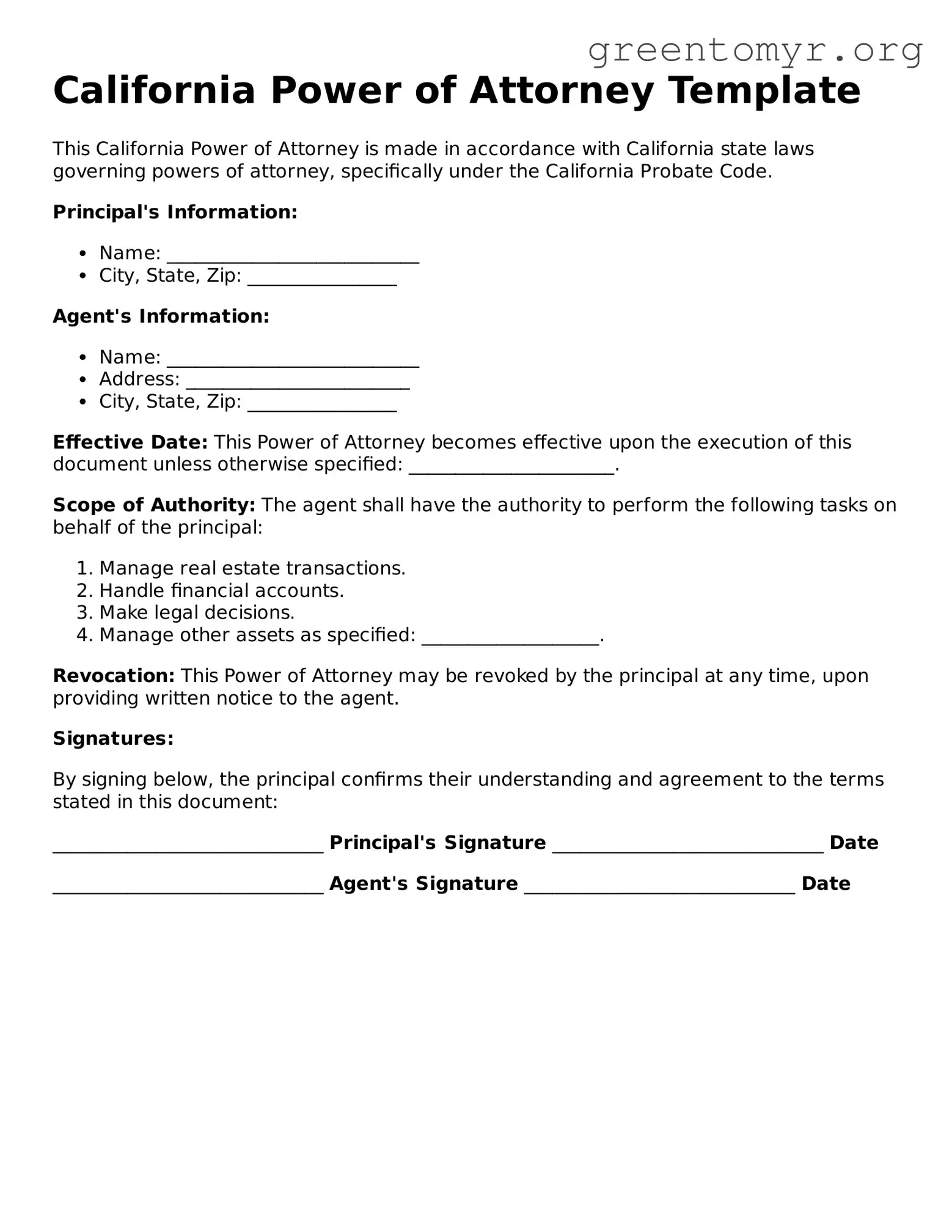California Power of Attorney Template
This California Power of Attorney is made in accordance with California state laws governing powers of attorney, specifically under the California Probate Code.
Principal's Information:
- Name: ___________________________
- City, State, Zip: ________________
Agent's Information:
- Name: ___________________________
- Address: ________________________
- City, State, Zip: ________________
Effective Date: This Power of Attorney becomes effective upon the execution of this document unless otherwise specified: ______________________.
Scope of Authority: The agent shall have the authority to perform the following tasks on behalf of the principal:
- Manage real estate transactions.
- Handle financial accounts.
- Make legal decisions.
- Manage other assets as specified: ___________________.
Revocation: This Power of Attorney may be revoked by the principal at any time, upon providing written notice to the agent.
Signatures:
By signing below, the principal confirms their understanding and agreement to the terms stated in this document:
_____________________________ Principal's Signature _____________________________ Date
_____________________________ Agent's Signature _____________________________ Date
